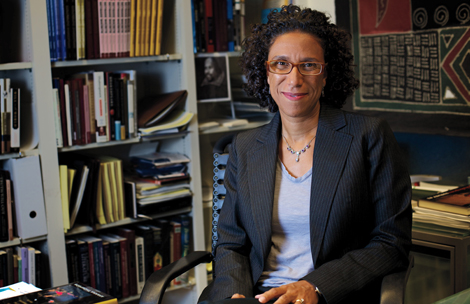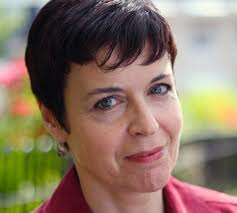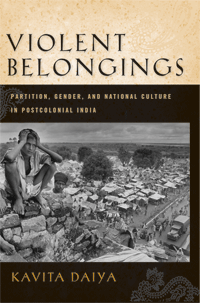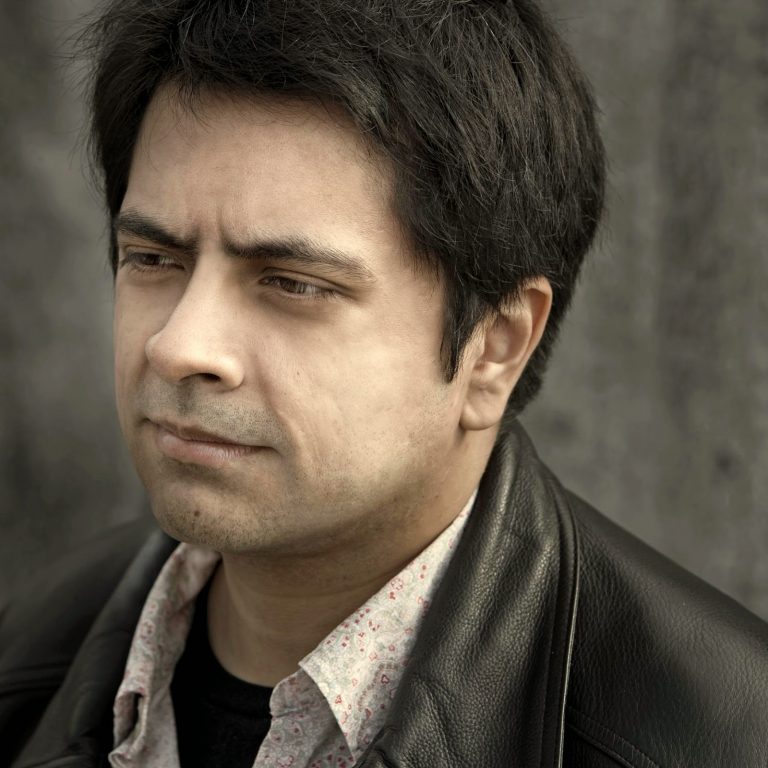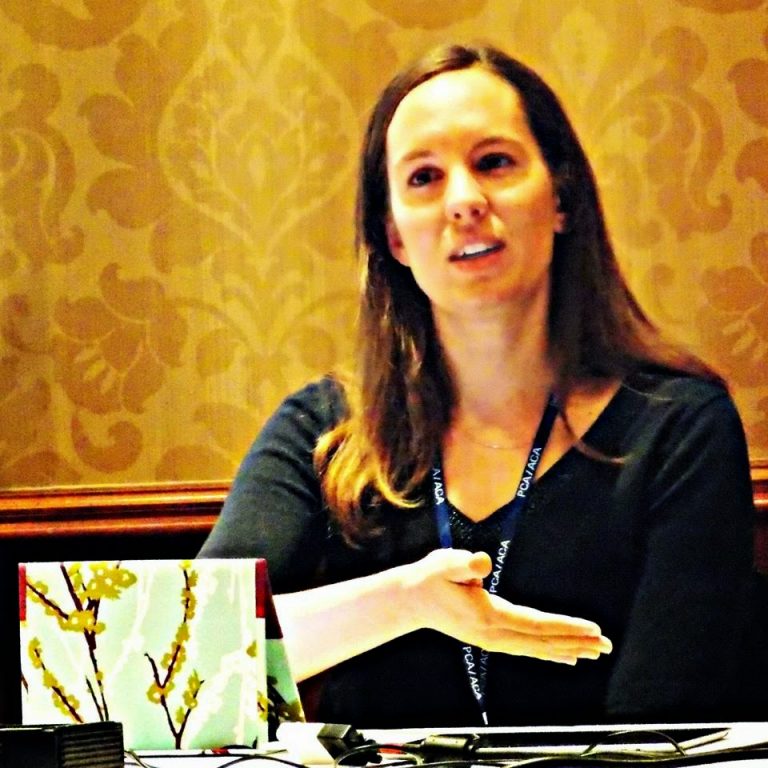 |
| GW English Professor Ayanna Thompson |
We are happy to roll out a new series for this blog, Introducing New Faculty. Over the next few weeks, you’ll meet everyone who will be joining us in Fall 2013. The Department of English is ecstatic to have three new faculty members joining us in the fall, along with a fourth faculty member who will be with us for the year (our 2013-2014 Jenny McKean Moore Writer in Washington). Watch this space for an introduction to each of these new members of our community. Today we’re introducing you to Professor Ayanna Thompson, a leading scholar of Shakespeare studies, performance studies, and race. Professor Thompson has been Professor of English and Associate Dean of Faculty in the College of Liberal Arts and Sciences at Arizona State University. We recently had a chance to chat with Professor Thompson about the year ahead.
Tell us about your research.
Although I am frequently labeled a “Shakespeare scholar,” a more adequate label is something closer to “performance race scholar.” My work explores the development and cultural legacies of racial constructions in seventeenth-century England. Because of my interest in the formation and perseverance of racial constructions, my work is both historically and theoretically informed, encompassing texts from the seventeenth century to the twenty-first century.
In my first two books, my work moved from being historicist to being theoretically
and practically focused. For instance,
Performing Race and Torture on the Early Modern Stage (Routledge, 2008), was essentially an historicist project that reevaluated the development of racial constructions in seventeenth-century England. This book provided the first sustained reading of Restoration plays through a performance theory lens and exposed how race was initially coded in a paradoxical fashion as both essentially fixed and socially constructed. My research also examines the important role performance continues to have on constructions of race. Thus,
Colorblind Shakespeare (Routledge, 2006), analyzed the complex relationship between modern Shakespearean productions and the controversial practice of nontraditional casting (that is, casting actors of color in roles that were originally written for white actors). The essays in this edited collection explored both the history of nontraditional casting in cultural terms and the theoretical implications of this practice for reading Shakespeare in a contemporary context.
More recently my work has been focused on Shakespeare in different American cultural/historical moments. For example, in
Passing Strange (Oxford University Press, 2011) I examined the ways Shakespeare and race have been and should be constructed in popular American culture. The book begins with the premise that notions, constructions, and performances of race continue to define the contemporary American experience, including our conceptions, performances, and employments of Shakespeare. The book’s guiding questions are: How is Shakespeare’s universalism constructed within explicit discussions and debates about racial identity? Do Shakespeare’s plays need to be edited, appropriated, revised, updated, or rewritten to affirm racial equality and relevance? And, do the answers to these questions impact our understanding of authorship, authority, and authenticity?
My interest in analyzing American Shakespeares is also apparent in
Weyward Macbeth (Palgrave Macmillan, 2010) (co-edited with Scott Newstok). This collection of essays provides innovative, interdisciplinary approaches to the various ways Shakespeare’s
Macbethhas been adapted and appropriated within the context of American racial constructions. Although many practitioners assume that they are the first to situate
Macbeth in an African-American landscape (or perhaps the second after Orson Welles), this collection demonstrates how frequently this appropriation occurs and theorizes why the history of appropriation is so often forgotten and erased.
I have several new book projects that are diverse in nature: one on revenge (see below); one on teaching Shakespeare; and one on the practical aspects to nontraditional casting (for theatre practitioners). Although I did not always feel this way as a graduate student, I love writing; it makes me happy!
We notice you’re teaching a Dean’s Seminar on Revenge in the Fall. Is this part of your new work? Why revenge? What do you think will be appealing about this seminar for incoming, first-year students?
The first course I ever designed on my own—when I had a visiting position at Bowdoin College—was a class on early modern revenge narratives. Because I was writing a dissertation chapter on Shakespeare’s Titus Andronicus, I was reading a lot of revenge tragedies and thought they were incredibly fun. Since that first teaching experience, I have refined my revenge tragedy class over the years, and I am finally writing a book about Shakespeare and revenge for Oxford University Press. Like my other book projects, I hope to create fruitful dialogues between the early modern constructions of revenge and our current historical moment. For example, I am interested in exploring the relationships between early modern notions of debt and credit and the twentieth-century concept of reparations; retributive justice since 9/11; the rising fear of black vengeance after the election of Barack Obama; and the enduring fascination with the Western genre. In this Dean’s Seminar I think first-year students will enjoy the mixture of literature, history, cultural politics, film, and gore, lots of gore!
What made you want to join the GW English Department?
The faculty! I can’t begin to express how impressive the faculty in GW’s English Department are. In fact, GW has been on my radar for a while. I advocated for my best M.A. student of all time—Lowell Duckert—to go to GW for his Ph.D. Well, he thrived working with the MEMSI faculty, and now he is an
assistant professor at West Virginia University. Plus, my work intersects with three key areas of focus in the department: Medieval and Renaissance; African American; and postcolonial. I feel incredibly lucky to be able to join such a vibrant department!
What are you most looking forward to about moving to Washington, DC?
Honestly, everything! I can’t wait to explore all the museums, parks, and monuments. But I am also looking forward to living in a vibrant art city: lots of professional Shakespeare theatre companies; lots of music venues (the
9:30 Club is legendary!); and lots of visual art. On top of that, there is the
Folger Shakespeare Library, which is vital for my research. Sometimes I can’t believe my good fate because DC is my dream city.
You’re leaving a dean’s position—what did you like about administration? Are you eager to return to teaching? We’ll be welcoming a new dean … any words of wisdom for him?
I have been in the dean’s office at ASU for two years, and I have learned a lot about how academic institutions run. I love gaining this new knowledge sets so the job has been incredibly rewarding in that sense. Now I have immense respect for the individuals who serve in these incredibly taxing roles: they work a lot harder than faculty and students know. Nonetheless, I really love teaching and writing, and those activities were getting squeezed. I can’t wait to return to the classroom and to write the books that I have promised to the publishers (instead of feeling guilty that I haven’t written them fast enough).
GW is very fortunate to hire Dean Vinson. I think he will be an incredibly strong advocate for the college, and I look forward to getting to know him. I hope he can continue with his research because he is a gifted scholar whose work has made a significant impact.
What do you hope your first class for graduate students might be?
At this point, I don’t know what my first graduate class will be. I usually like to tailor my classes to the needs of the current Ph.D. students. For example, I had a lot of graduate students at ASU who were working on/around issues of adaptation so I created a course on American Shakespeares that really dug deep into adaptation theory. Therefore, I want to get to know the GW graduate students first, and then start thinking about courses that will benefit their research and scholarship. But I have lots of ideas…
We’re excited to hear those ideas and excited to have you here with us!

